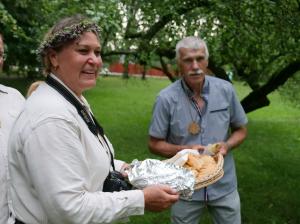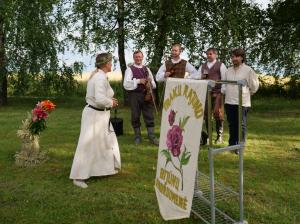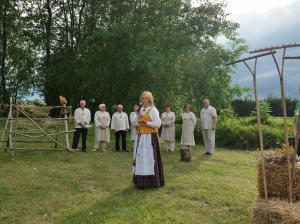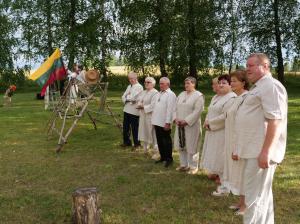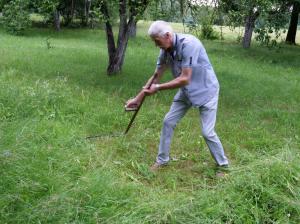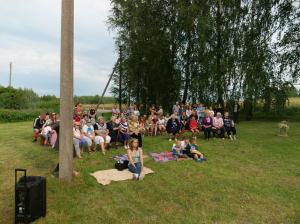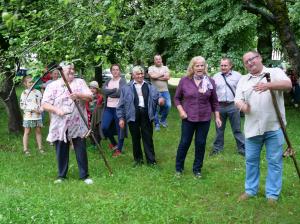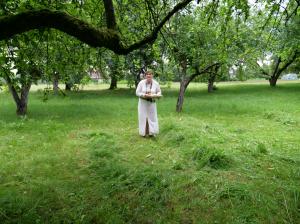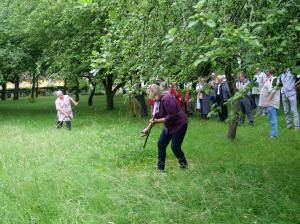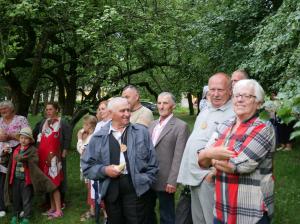 Back
Back
Haymaking Ethnographic Festival “The first swath festival in Bijūnai”
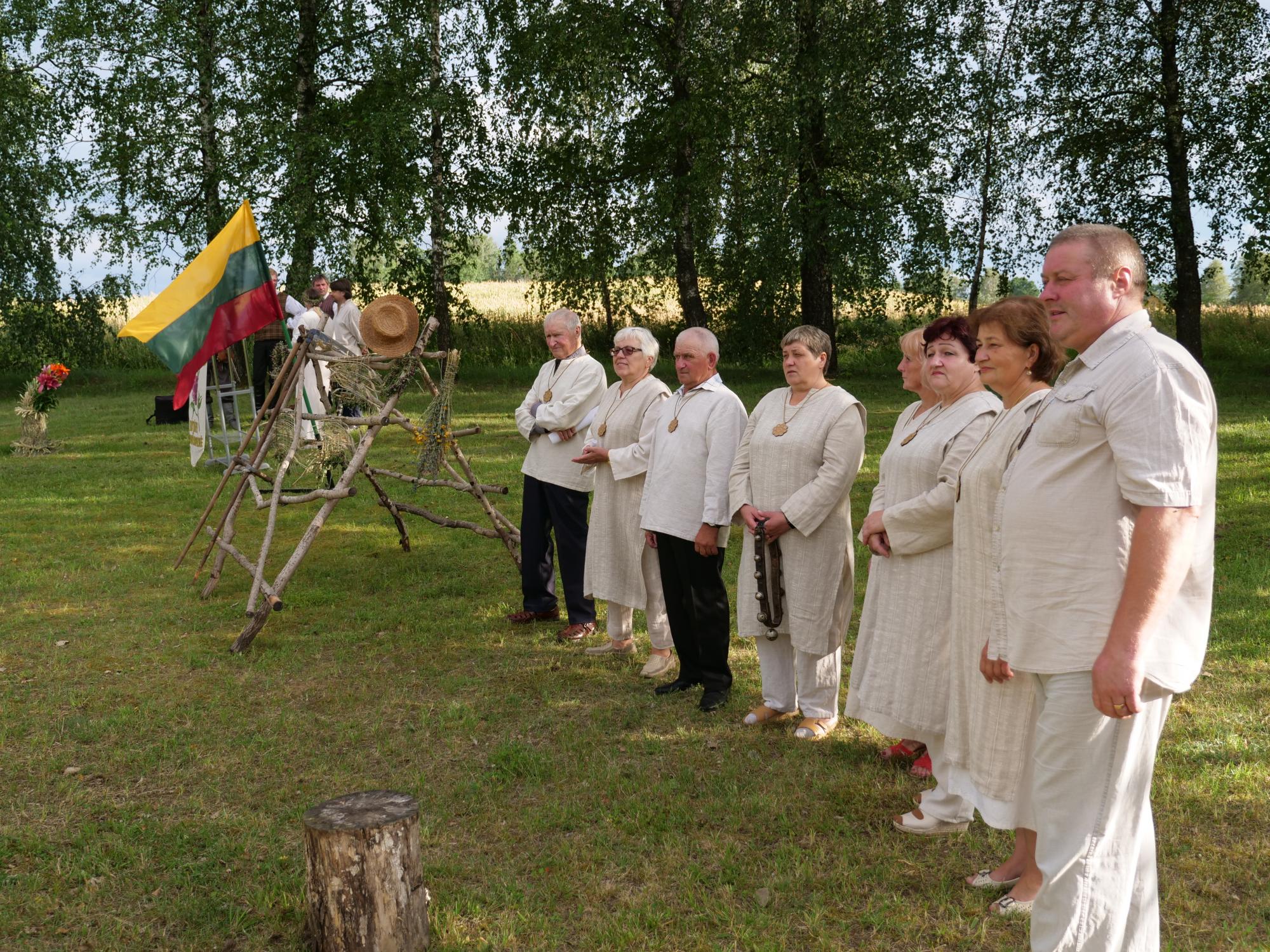
The first swath – the beginning of haymaking
“Corn crake is already yelling: Need to go mowing the meadowlands”, the Lithuanians used to say, while taking scythes with the greatest joy. Often, meadowlands were mutual, so Lithuanians who had met during the communal work early in the morning were swinging scythes, sang songs and laid freshly cut grass in the swaths.
The ethnographic festival of haymaking day on the 6th of July – the day of coronation of king Mindaugas. This day is loved and welcomed by the people of Bijūnai every year. The festival takes place in an open outdoor space, which invites dwellers to have fun and spent leisure time meaningfully. Concert programs are presented by amateur art groups and pop music performers. Every year, residents of local and neighboring villages, communities, adult and youth art amateur groups with their own art programs contribute to organization of the event.
Before the festival, the villagers are invited to make sculptures of hay, straw or grass, which are exhibited in the festival’s exhibition later. It’s important that those who come to the festival wouldn’t become only passive observers, therefore, with the help of various competitions and nominations, the participants of the festival are involved in the activities. This creates even better mood, impressions, experiences and emotions. There is a demonstrative program of mowing process i.e. competition. The participant worthy of the recognition for the best results in a particular category is chosen: "The Best Scythe Beater", "The Best Mower", "The Best First Sweeper", “Hay stacker”, “Raker”.
At 9 p.m., all those who gathered are singing the national anthem in unison together with the whole of Lithuania and Lithuanians around the world. Later, people gather near a bonfire. The artistic program of the festival is continued by amateur art groups. The participants continue to have fun, communicate, dance, enjoy traditional rural fish soup and village housewives’ dishes. The First Swath festival is an opportunity not only to communicate with people of different rural generations, spent time together but also to remember the old rural traditions, get to know them and repeat them in response to our environment.
Audio guide

